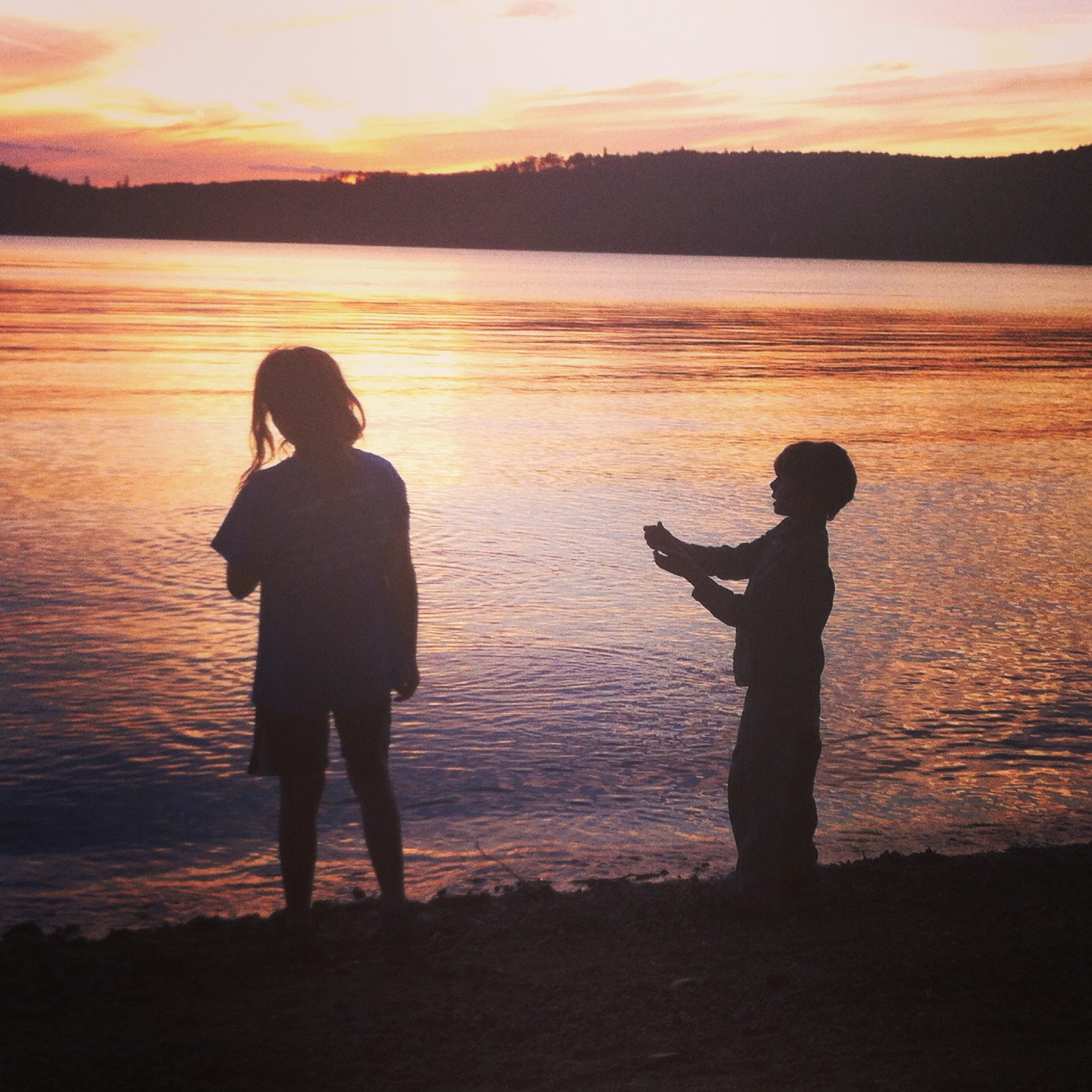What’s always been within. I’ve wanted to learn how to play guitar for God knows how long, and now I am slowly teaching myself how to, by the simple virtue of the two friends who have dropped off guitars, no strings attached (oh my God, I didn’t even realize that was a pun, let alone such a bad one, until I reread that — both guitars had literal strings attached, for the record), for as long as I need them to learn, by the boundless resources of my friends who play, by online teachers. It was never difficult to get supplies or knowledge, but the impetus has always been within me, just waiting for me to sit down and commit to figuring it out, to showing up and focusing so hard I find my tongue poking out of my mouth as I try to play an F chord fluently. I will one day, won’t I?
What’s always been within. Transformative practice. Like how little, really, we actually need to go grocery shopping. The pantry, the chest freezer, the cupboards — they’re all overflowing. For a few weeks, now, I’ve been avoiding the grocery store, trying to see what I can whip up with those dried beans, that odd cut of meat from the quarter cow we purchased back in November, that can of rice-stuffed grape leaves, the beets and carrots and zucchini and garlic from our own garden, that cylinder of gourmet tea. I’ve written about this before: It’s amazing, what’s here already and what we can create from it.
Just like it’s amazing how many pairs of shoes I have, how many beautiful items of clothing that I forget about until I pull them out and try to combine them into new outfits. There are so many books to read in this house, and more at the library. I have some of the best friends imaginable, and they are lovely and generous to talk with. I have thousands of hours of music that I barely listen to. I can get on my year-old, gorgeous bike and be somewhere new in minutes, can drive out to the Cascades and lose myself in the rush of water and the permanence of rock.
Same with writing. The material is there, if I dig deep enough in the cedar closet or the pantry or the shed or wherever it is that I happened to stick and ignore it. I finished a draft of a short story today, one that's been brewing for close to a decade. (I wrote it while knitting; some kinds of multitasking seem to work together, the hands busy with their repetitive stitching while the words flow.) All I had to do was sit there (with the Internet turned off and my phone hidden in my underwear drawer, obviously) and get the words down, sometimes slowly, sometimes awkwardly, but down.
There’s a mistake in the knitting project I’m working on now — a knit stitch that should have been a purl or vice versa, several dozen rows down from where I’m at now. I’m ignoring it.
I’m trying to stay in this space, to remember it especially when a longing or anxiety or dissatisfaction (the Buddhists call it dukkha, Pema tells me) take hold of me. I'm trying to remember how much of this action is very likely propelled by that very dukkha, that I can do all those things when apparently consumed by it. It doesn’t actually matter how I feel. And I can do all those things in the hopes that the dukkha will dissipate, but mostly I just have to do them to do them.
I’m not intending to be all Pollyanna-ish here. I’m not chastising myself or anyone else for our blindness to our plenty. I'm not ignoring the reality that many people don't have the resources, the space, the time, the sheer luck and the luxury of having so much and the space and time for transformation. I’m not saying that everything will be better if we just wake up to what’s within. I’m just trying to stay awake and alive to what’s actually, objectively, almost always available to me if I simply slow down enough to access it, work with it. And sometimes I look up and realize that I’ve forgotten about everything else except the next stitch, the fashioning my awkward fingers into the next chord, the peeling of the beets, the downward thrust of my foot on the pedal. It's always, all of it, already there.














